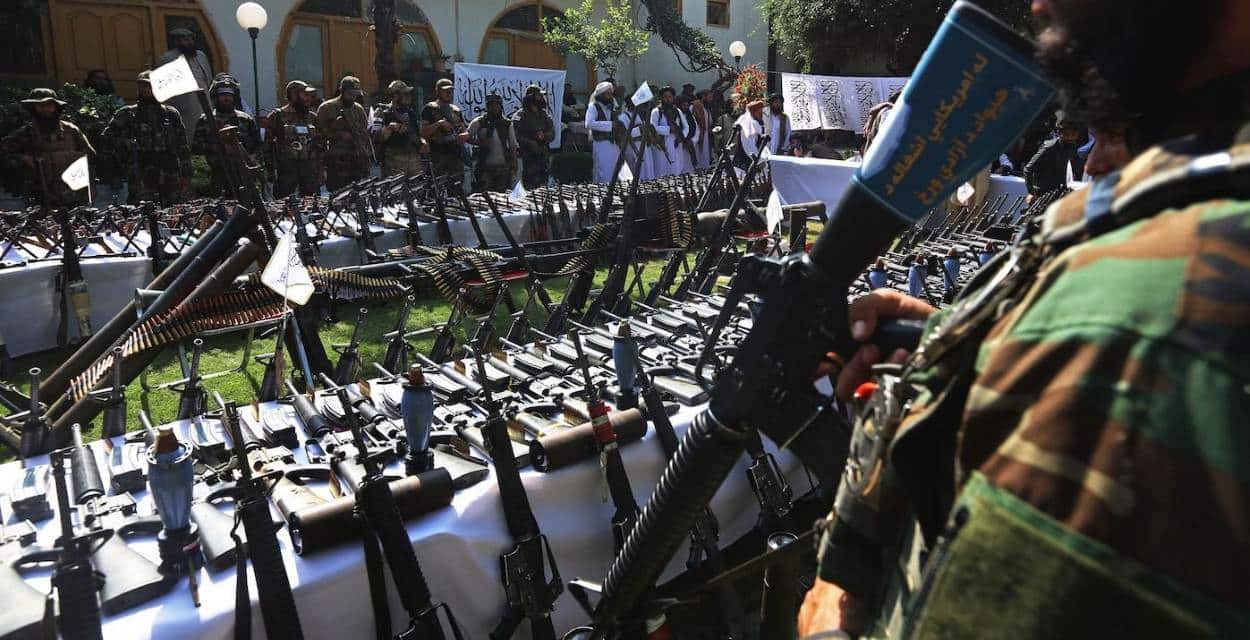A BBC report, published on April 17, 2025, alleges that the Taliban have sold or smuggled approximately 500,000 American-made weapons to terrorist groups, including al-Qaeda affiliates, since taking control of Afghanistan in 2021. These weapons, left behind by U.S. forces, are now linked to terror attacks in Pakistan, raising global concerns about regional instability and counterterrorism efforts.
Citing a United Nations report, the BBC notes that the Taliban admitted to losing track of nearly half of the U.S.-supplied military equipment. The U.S. Special Inspector General for Afghanistan Reconstruction (SIGAR) estimates that 250,000 firearms, 18,000 night-vision devices, and other equipment valued at $85 billion by former President Donald Trump were abandoned. The UN report claims Taliban leadership allowed local commanders to keep 20% of the arsenal, fueling black market sales.
Those of us who criticized the Doha Accords, warned against this being one of the consequences of the Taliban’s return to power. ‘US weapons left in Afghanistan sold to militant groups, sources tell @BBC https://t.co/Wvefip7r9F
— Husain Haqqani (@husainhaqqani) April 18, 2025A Kandahar journalist confirmed that American arms were openly traded in markets for a year after the Taliban’s takeover before shifting to underground networks. The weapons, including M32 grenade launchers, M-16/A4 rifles, M-4 carbines, and night-vision gear, have been recovered in Pakistan during attacks like the BLA assault on a Turbat naval base and the Gwadar Port Authority incident.
Pakistan’s Security Concerns
Pakistan’s security agencies have linked these U.S.-origin weapons to a surge in terrorist activities. A Washington Post investigation confirmed that Tehrik-i-Taliban Pakistan (TTP) used M16 rifles, traced to U.S. stockpiles, in the March 11, 2025, Jaffar Express bombing. Recoveries in North Waziristan, Zhob, Bajaur, and Mir Ali further highlight the spread of weapons. Pakistan’s Foreign Ministry has called the proliferation a “serious threat to national security,” urging tighter arms monitoring.
Taliban deputy spokesperson Hamdullah Fitrat dismissed the allegations as “baseless propaganda,” insisting all weapons are secure. However, international observers, citing the UN and SIGAR reports, have called for stricter oversight to prevent arms proliferation in post-conflict Afghanistan. The redistribution of these weapons to hostile groups risks destabilising the region and complicating global counterterrorism efforts.






